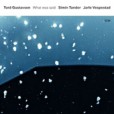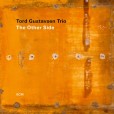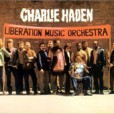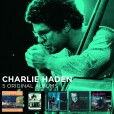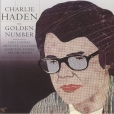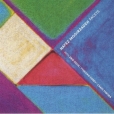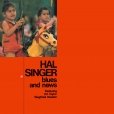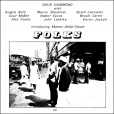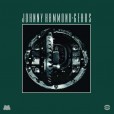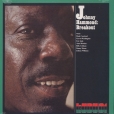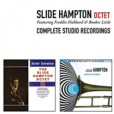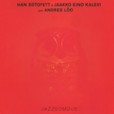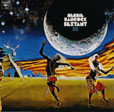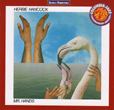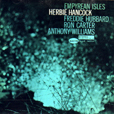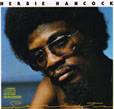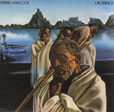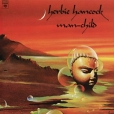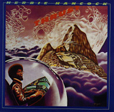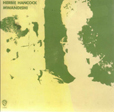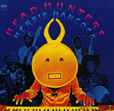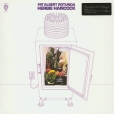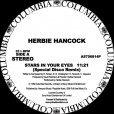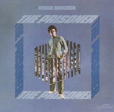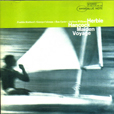Your basket is empty

A suite of revolutionary anarchist songs from the Spanish Civil War — featuring Don Cherry, Roswell Rudd, Gato Barbieri, Dewey Redman and guitarist Sam Brown — plus Ornette’s War Orphans, three works by Carla Bley (who arranges brilliantly), and two by the great bassist himself, in tributes to Che Guevara and protests against the Vietnam War, on his tumultuous, bracing, expansive first outing as leader, in 1970.
Haunted Heart, Steal Away, Night And The City, The Art Of The Song, Nocturne.
Duets with Don Cherry, Ornette Coleman, Hampton Hawes, and Archie Shepp.
‘Verve By Request.’
Recorded for Futura in the spring of 1971 — soon after the veteran saxophonist arrived in Paris — with his spar Art Taylor and local musicians including Siegfried Kessler.
Singer came up through numerous swing bands, and then team-ups with bop luminaries like Don Byas and Roy Eldridge, before joining Duke Ellington’s orchestra.
A long look back, blues and news, keenly open to the new thing, this is superb, generous, upful jazz — with dashes of modal, r&b, swing, soul jazz — book-ended by tributes to his time with James Brown. It’s My Thing is JB by way of Cannonball; the limber, extended, new version of Malcolm X, with Kessler whipping up a storm, is simply unmissable.
“I get something out of listening to Coltrane, Shepp and Coleman; I’m really pleased that young players are trying to change things. If they go back to the roots and come up with something new, that’s fantastic.”
Classic spiritual jazz from 1980, with the great bassist Cecil McBee, vocalists Angela Bofil and Bessie Carter, saxophonists Steve Coleman and Byard Lancaster, and cellist Muneer Abdul Fataah.
This Mizell Brothers production from 1975 is surely their masterwork. No hanging about on the grid — the sublime opener Tell Me What To Do flies like a Byrd; followed by the bonafide Loft classic Los Conquistadores Chocolates, a psychedelic, heads-down floor-filler which hit big at Ron Hardy’s Chicago Music Box as well as in NYC. Fantasy was a Paradise Garage staple; and Shifting Gears is here, too — a seriously funky breaks and block party anthem, heavily sampled by classic hip hop. It’s a must… not least in the form of this 40th anniversary LP edition, with six previously unissued tracks — five tasty new numbers and a skeletal version of ‘Can’t We Smile?’
Cosmic jazz excursions on saxophone, flute, electric keys, synths and drums.
Supple, deep and spacious; sparklingly dubwise; intensely percussive.
‘Classic Vinyl Series.’
‘Herbie took the basic instrumental tracks of Quasar and Water Torture to Patrick
Gleeson’s Different Fur Studios, hoping to learn how to play the Moog synthesizer. Instead, Hancock let Gleeson contribute layers of sound to both pieces: on Quasar extending the horn playing of Bennie Maupin, Julian Priester and Eddie Henderson through electronic accents; on Water Torture providing a ghostly counter melody on the Mellotron (using samples from string instruments). These studio enhancements give Crossings an
otherworldly dimension, making the album feel bigger and more fantastical, yet the Sextet’s playing — recorded without much in way of edits or overdubs — keeps everything grounded. Indeed, Gleason’s additions are often so natural that it is hard to pick out what’s acoustic and what’s synthesized.’
The second LP by the sextet aka the Mwandishi Band, and Herbie’s last for Warner Brothers, clearing the way for the Headunters.
LP from Music On Vinyl.
‘After releasing their Warner Bros. debut, the Herbie Hancock Sextet underwent a major transformation in the early ’70s. Over the course of a year, every member was replaced (except Herbie Hancock himself and bassist Buster Williams) and each adopted Swahili names. Hancock chose the moniker Mwandishi (‘composer’), and the Sextet became unofficially known as the Mwandishi Band.
‘The lineup’s first album reflects Hancock’s new aesthetic and spiritual directions. Stretching out from the r&b/jazz-fusion of Fat Albert Rotunda, the pianist would draw inspiration from his time with Miles Davis…
‘Dedicated to Angela Davis, Ostinato is an extended jam with stunning rhythmic complexity — enhanced by such studio effects as Echoplex delay. On You’ll Know When You Get There, Hancock’s tight arrangements are saturated in reverb, which gives an ever-shifting dimensionality. Side-long closer Wandering Spirit Song, written by trombonist Julian Priester, goes even further out: alternating between dynamic soloing and group improvisation, the Sextet fully manifests the radical potential of their collective identity/energy.
‘A bold and expansive statement, even after nearly fifty years.’
Timelessly killer, essential music, and a humongous commercial success, this is the key record bar none in the binding of jazz into funk.
‘A playful, joyous album in which Hancock clearly had a great time, this music was composed for the pilot of a children’s TV show, redirecting the post-bop of his five-year stint with Miles towards new r&b and funk styles. Flying high with three horn players — Joe Henderson, Garrett Brown and Johnny Coles — alongside Hancock’s soaring Fender Rhodes, the group could swing freely on a track like the rousing Fat Mama and emote precisely on the subtle Tell Me A Bedtime Story.’
This is the sublime, eleven-minute version, featuring vocalist Gavin Christopher.
Big Theo Parrish record.
Backed with the promo-only disco mix of Saturday Night, lavished with percussion by Sheila E.
Murders.
‘Classic Vinyl Series.’
